


Numerous web sites, The Official David Bowie Web Site, Internet Movie Data Base - David Bowie, Rock And Roll Hall Of Fame - David Bowie & Rolling Stone Discography - David Bowie were quite helpful in preparing my tribute to David Bowie. Please click on the hyperlinks to enjoy these web sites.
David Bowie (nicknames: “Thin White Duke,” & “Ziggy Stardust,”) is widely regarded as one of the most influential writers of pop music. Born David Robert Hayward-Jones, 8 January 1947, Brixton, London, England, UK, he changed his name to Bowie in the 1960s, to avoid confusion with the then well-known Davy Jones (lead singer of The Monkees).
David Bowie is rock’s foremost futurist and a genre-bending pioneer, chameleon, and transformer. His innovations have created or furthered several major trends in rock and roll, including glam-rock, art-rock and the very notion of the self-mythologized, larger-than-life rock star. Bowie is known for his constantly changing physical appearance, wide ranging vocals, and one permanently dilated pupil, which gives him the appearance of different colored eyes. He cites Little Richard as his first musical influence.
The 1960s, for Bowie, was an era in which he was a struggling artist, awaiting his breakthrough. He dabbled in many different styles of music (without commercial success), and other art forms such as acting, mime, painting, and playwriting.
In 1968 while he was still a struggling artist, Bowie wrote some English lyrics to a French song titled "Comme d'Habitude" (As Usual). His version, "Even a Fool Learns to Love", never did get recorded. But when the French melody caught the attention of Paul Anka, he reworked the lyrics and the song became "My Way". Of course, when Frank Sinatra recorded "My Way" his way, it turned to gold.
He finally achieved his commercial breakthrough in 1969 with the song "Space Oddity," which was released at the time of the moon landing. On September 20, 1969, it hits #5 on the
On December 11, 1971, David Bowie releases ‘Hunky Dory,’ which contains the classic “Changes.”
In 1972, Bowie created "Ziggy Stardust," a concept album about a space-age rock star. This album was followed by others in a similar vein, rock albums built around a central character and concerned with futuristic themes of Armageddon, gender dysfunction/confusion, as well as more contemporary themes such as the destructiveness of success and fame, and the dangers inherent in star worship.
On September 12, 1972, Mott The Hoople’s “All The Young Dudes,” a glam-rock anthem penned and produced by David Bowie, hits #3 in the
On March 31, 1973, Lou Reed’s “Walk On The Wild Side,” a musical tour of the
On September 20, 1975: “Fame,” a song from David Bowie’s ‘Young Americans’ album, tops the
He also appeared in his first major film, The Man Who Fell to Earth (1976). The following year, he released "Station to Station," containing some of the material he had written for the soundtrack to this film (which was not used). On February 7, 1976, David Bowie’s ‘Station to Station’ enters the album charts. It is the highest-charting album of Bowie’s career, peaking at #3. He fled back to Europe, finally settling in
On January 10, 1977, David Bowie wins the US Academy of Science Fiction Fantasy and Horror Films Best Actor Award for ‘The Man Who Fell to Earth’.
On February 12, 1997, Bowie unveiled his star on
On May 11, 1977, Iggy Pop releases ‘The Idiot’ and it hits #30 in the
On September 11, 1977, David Bowie records his guest appearance on ‘Bing Crosby’s Merrie Olde Christmas’. Bowie and Bing perform a duet of “The Little Drummer Boy.”
On November 6, 1977, Iggy Pop releases ‘Lust for Life’. The album is produced by David Bowie.
March 1, 1982: Pete Townshend, Stevie Nicks, Mick Jagger, Adam Ant, Pat Benatar, the Police and David Bowie kick off the “I Want My MTV” advertising campaign.
The next few years saw something of a drop-off in his musical output as his acting career flourished, culminating in his acclaimed performance in Merry Christmas Mr. Lawrence (1983). Musically, Bowie’s commercial masterstroke came in 1983 with “Let's Dance,” an accessible set of modern-minded dance music that gave Bowie his second #1 hit with the brassy, swaggering title track, as well as “China Girl” (#10) and “Modern Love” (#14). On May 15, 1983, “Let's Dance”, featuring Stevie Ray Vaughan on guitar, is David Bowie’s first #1 hit in both the US and UK. The tour which followed, "Serious Moonlight," was his most successful ever. Finally, in the late 1980s, he turned his back on commercial success and his solo career, forming the hard rock band, Tin Machine, who had a deliberate limited appeal.
He turned down the role of Max Zorin for the 1985 James Bond film A View to a Kill (1985), citing his lack of enthusiasm for recent Bond villains. The part went to Christopher Walken instead.
On June 10, 1989, ‘Tin Machine,’ the first of three albums by Tin Machine, a quartet that includes David Bowie, is released. The other are ‘Tin Machine II’ (1991) and the live ‘Oy Vey, Baby’ (1992).
He also turned down the role of Captain Hook in Hook (1991).
In 1992, Bowie again changed direction and re-launched his solo career with "Black Tie White Noise," a "wedding" album inspired by his recent marriage to Iman. On September 26, 1995, he renewed his working relationship with Brian Eno to record "Outside,” a challenging and unconventional “gothic hyper-drama." This album has now taken its place with his classic albums. In a career spanning four decades, Bowie has influenced the course of popular music several times and influenced several generations of musicians. His promotional videos in the 1970s and 80s are regarded as ground-breaking, and as a live concert act, he is regarded as the most theatrical of them all.
Bowie (vocals, guitar, saxophone, keyboards) was inducted into the Rock And Roll Hall Of Fame, as a performer, on January 17, 1996, at the eleventh annual induction dinner. Madonna and David Byrne are his presenters.
He was loosely the basis for the film Velvet Goldmine (1998).
On September 11, 1998, the entrepreneurial David Bowie, becomes the first rock star to become Internet Service Provider (ISP), BowieNet.
On October 5, 1999, ‘hours...’ a pensive, end-of-the-millennium album by David Bowie, is released.
Bowie is credited as himself in Zoolander (2001). He is the judge of the fashion "walk-off" between Owen Wilson and Ben Stiller.
In March, 2003, his 1972 album "The Rise And Fall Of Ziggy Stardust And The Spiders From Mars” was voted 8th in Classic Rock Magazine's list of the 30 greatest concept albums of all time. He was voted the 39th Greatest Artist in Rock 'n' Roll by Rolling Stone. He shares a birthday with 3 other Rock and Roll Hall of Fame members: Elvis Presley, The Doors guitarist Robby Krieger and legendary promoter Bill Graham. He also shares it with director John McTiernan and actress Ami Dolenz.
He is ranked #12 on VH1's 100 Sexiest Artists, and #7 on VH1's 100 Greatest Artists of Rock & Roll.
Bowie played Serbian/American scientist and inventor Nikola Tesla in The Prestige (2006).
He has performed with (on separate occasions) Queen, Mick Jagger, Lou Reed, Iggy Pop, Al B. Sure! , Tina Turner, Annie Lennox, Nine Inch Nails and Bing Crosby.
David Bowie’s Discography…
There are so many David Bowie CD’s, and Greatest Hits Compilations, that instead of listing each one, or, possibly listing many, and forgetting some, I will include a hyperlink, Rolling Stone Discography - David Bowie. Click on the hyperlink to see the MANY David Bowie recordings…
David Bowie has a lot of quality songs, such as America, Changes, China Girl, Dancing In The Streets, Fame, Heroes, Let’s Dance, Major Tom, Modern Love, “Rebel, Rebel,” Young Americans and Peace On Earth – Little Drummer Boy (with the legendary Bing Crosby), among others…
Thank you, Mr. Bowie, for some great music…

















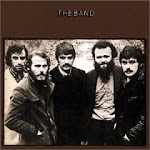



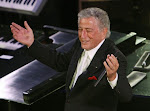







































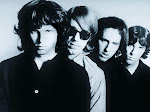































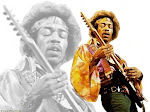

































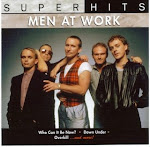%2B-%2BRock.jpg)

















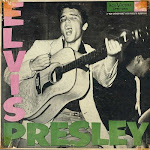



















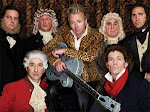




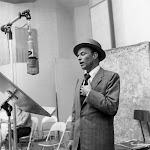




















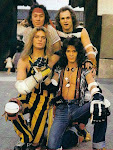











No comments:
Post a Comment